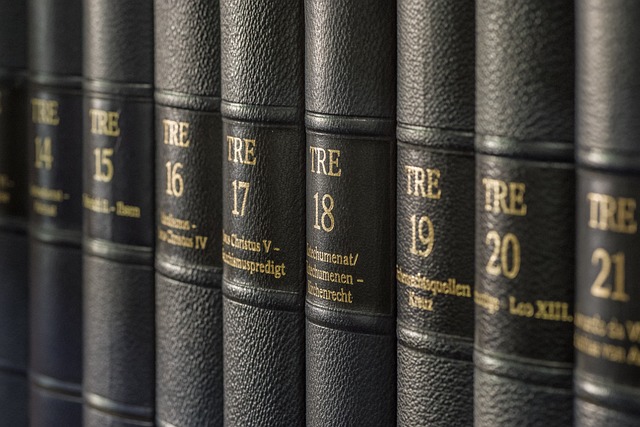In Karachi, Pakistan's economic hub, budget reallocations are a powerful strategy to enhance educational outcomes, addressing resource disparities among public schools. By strategically redirecting funds, cities can improve teacher training, modern learning technologies, and infrastructure. These shifts aim to create an inclusive, high-quality education system, better preparing students for future challenges. Dramatic transformations include building upgrades, advanced technology, and improved academic performance, setting a standard for quality education that benefits the entire community.
In the bustling metropolis of Karachi, budget reallocations have emerged as a pivotal strategy for transforming the city’s school system. This article delves into the profound impact of such financial shifts, exploring how they navigate the intricate landscape of education funding in Karachi. From enhancing teacher resources and student-teacher ratios to upgrading infrastructure and educational technology, we analyze the multifaceted benefits of budget reallocation. By examining post-reallocation outcomes, this study offers insights into effective strategies for improving educational quality in Karachi’s schools.
- Understanding Budget Reallocations: A Necessary Strategy for Karachi's Schools
- The Current State of Education Funding in Karachi
- How Reallocation Impacts Teacher Resources and Student-Teacher Ratios
- Enhancing Infrastructure and Facilities: Benefits of Budget Redistribution
- The Role of Reallocated Funds in Upgrading Educational Technology
- Measuring Success: Evaluating the Post-Reallocation Outcomes in Karachi's School System
Understanding Budget Reallocations: A Necessary Strategy for Karachi's Schools

Budget reallocations are a strategic tool that can significantly impact educational outcomes in urban areas like Karachi, where resources are often unevenly distributed. In this context, understanding how to effectively manage and redirect funds is paramount for improving school systems. When schools in Karachi face budget shortfalls or imbalances, reallocating resources becomes a necessary strategy to ensure critical areas of education receive adequate attention.
This process involves careful assessment of existing spending, identifying inefficiencies, and making data-driven decisions to optimize resource allocation. By reallocating funds, schools can enhance teacher training programs, invest in modern learning technologies, improve infrastructure, and cater to the diverse needs of students across Karachi’s varied neighborhoods. Such strategic financial shifts have the potential to foster a more inclusive and high-quality education system, ultimately preparing students for the challenges and opportunities they’ll encounter in their lives.
The Current State of Education Funding in Karachi

Karachi, Pakistan’s economic powerhouse, faces a complex landscape when it comes to education funding. The current state of schools in this bustling metropolis reflects a mix of progress and challenges. While Karachi boasts some of the country’s top educational institutions, many public schools struggle with inadequate resources. This disparity is particularly evident in low-income neighborhoods, where overcrowded classrooms and a lack of basic facilities are common.
Budget reallocations have been a topic of much debate among education stakeholders in Karachi. Recent efforts to redirect funds towards underfunded areas have shown promise, but the impact remains varied. Effective allocation requires understanding the unique needs of different communities within the city. With a population as diverse as Karachi’s, tailored solutions are essential to ensure every student has access to quality education, fostering a brighter future for the metropolis.
How Reallocation Impacts Teacher Resources and Student-Teacher Ratios

In many cities, including Karachi, budget reallocations within school systems can significantly alter teacher resources and student-teacher ratios. When funds are shifted from one area to another, it often means hiring freezes, retirements, or even layoffs for teachers in certain subjects or special programs. This reduction in staffing directly impacts class sizes, with higher student-teacher ratios resulting. In Karachi’s diverse educational landscape, this can create disparities across schools, affecting the quality of education received by students.
For instance, reallocations might prioritize resources for STEM (Science, Technology, Engineering, and Mathematics) programs or special needs education, leaving traditional subjects or less popular areas with fewer teachers. This imbalance can lead to larger classes for core subjects, potentially hindering individualized attention for students and placing extra pressure on existing educators. Understanding these effects is crucial as schools in Karachi navigate budget shifts, ensuring equitable access to quality teaching remains a top priority.
Enhancing Infrastructure and Facilities: Benefits of Budget Redistribution

In Karachi, budget reallocations have significantly enhanced infrastructure and facilities in schools. When financial resources are redistributed strategically, educational institutions can undergo metamorphosis. This often involves upgrading outdated buildings, constructing new classrooms, and improving overall school aesthetics. Such physical transformations create a positive learning environment, fostering better engagement among students.
Moreover, additional funding enables the installation of modern technology, such as smart boards and computer labs, which are integral to today’s educational landscape. These advancements prepare students for the digital age, enhancing their skills and knowledge base. As a result, schools in Karachi have witnessed improved academic performance and increased student satisfaction, setting a precedent for quality education that benefits the entire community.
The Role of Reallocated Funds in Upgrading Educational Technology

In many cities, including Karachi, budget reallocations play a pivotal role in shaping the future of education. When funds are redirected from non-essential sectors to educational technology (EdTech), it triggers a wave of modernization and innovation within school systems. This shift enables schools to upgrade their outdated infrastructure, introducing digital learning tools that enhance student engagement and teaching methodologies. With access to improved technology, educators in Karachi can create more interactive and personalized learning environments, benefiting students across the city’s diverse academic landscape.
The reallocation of resources allows for the procurement of advanced hardware, software solutions, and digital resources, such as tablets, interactive whiteboards, and online educational platforms. These additions not only make classrooms more dynamic but also equip students with digital skills crucial in today’s tech-driven world. In Karachi’s context, where rapid urbanization has increased the demand for quality education, this strategic investment in EdTech promises to bridge the digital divide and foster a more inclusive learning experience for all students.
Measuring Success: Evaluating the Post-Reallocation Outcomes in Karachi's School System

In Karachi, budget reallocations have become a strategic tool to enhance the school system’s overall performance. Measuring success goes beyond mere figures; it involves a comprehensive evaluation of post-reallocation outcomes. By focusing on key metrics such as student enrollment, academic achievements, and infrastructure development, educators and policymakers can assess the impact on the educational landscape of Karachi.
The success of these reallocations is evident in the increased access to quality education for diverse communities. Schools in previously underserved areas have witnessed improvements in teaching resources, leading to better learning outcomes. This shift prioritizes student needs, ensuring that every learner in Karachi has the opportunity to thrive academically, regardless of their background.
Budget reallocations in Karachi’s school systems have demonstrated significant potential to transform education. By strategically redistributing funds, schools can enhance infrastructure, upgrade technology, and improve resource allocation, leading to better student-teacher ratios and ultimately, enhanced learning outcomes. This article highlights the positive impact of such measures on the educational landscape of Karachi, suggesting that continued reallocation strategies could be a game-changer in fostering a vibrant and efficient school system.
